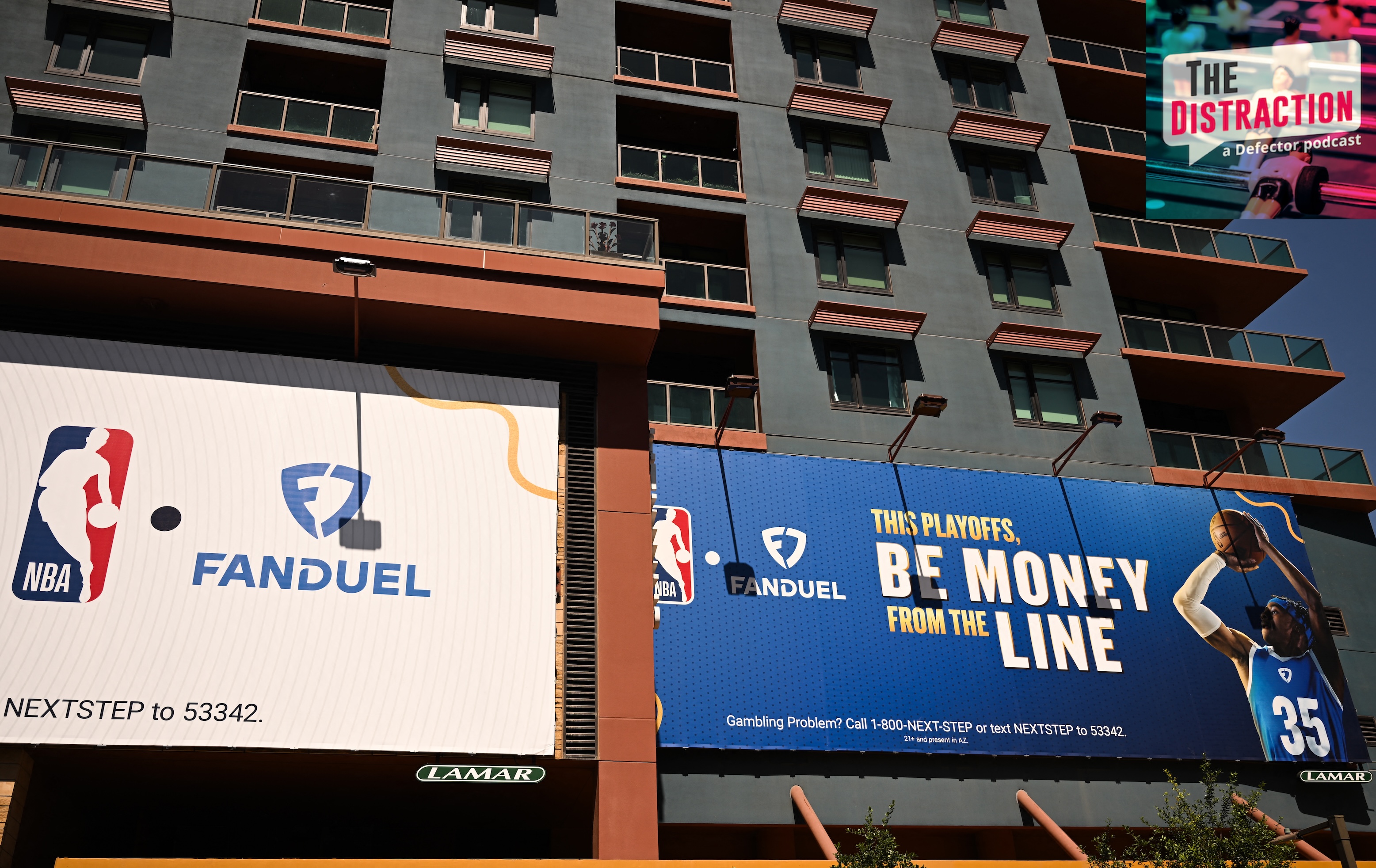Doing Cocaine In An MRI Machine, With Arif Hasan | Defector

There is something bleakly inspiring about the fact that despite the total saturation of sports culture with the brand and business, there appears to be no way to make sports gambling feel like anything but poisonously bad vibes. People are still doing it and sometimes wrecking their lives in the process. The gambling concerns that sit atop the industry are propping up what’s left of sports media with their advertising expenditures, and bending coverage toward their own cheesy ends. A government that only grudgingly restrains predatory industries like this one, under the best of circumstances, is not remotely under the best of circumstances. None of this appears to be going anywhere, but it is also not getting any less repellent. Sounds like podcast stuff to me!
Our guest this week is the great Arif Hasan, NFL ace and author of a magisterial recent post detailing how deeply gambling has permeated sports in the years since it was legalized. That post covers a lot of ground, and our conversation did as well. We addressed the dynamics of gambling addiction and how the big apps are optimized to exploit those tendencies, and the ways in which gambling companies have made themselves ubiquitous. Arif’s point that “all the studies done on what’s called ‘problem gaming’ are done by the industry” really resonated here. (On the pod, I shouted out Corbin Smith’s great story on sports gambling, and will do so again here.)
Arif told a painful story about missing out on an extremely big payday that opened into a conversation about how a gambler watches and understands sports. We also discussed the differences in caring about sports as a fan and caring about sports as a gambler, and what the downstream effects might be for leagues in trying to turn the former into the latter, and what the effects already have been in the United Kingdom, which legalized sports betting years before the United States. I’m not spoiling anything when I mention that they have been very bad.
After a word from our friends at Bareback Sportsbook and one last question from me, we jumped into talking about actual sports. We tried to figure out what is wrong with the Chicago Bears, in the near-term sense and in a more cosmic one. We also tried to figure out how and why the Kansas City Chiefs keep winning, whether the world must “eat the ball” and pay attention to Russell Wilson again, and considered what sure looks like the end of The Daniel Jones Experience with the New York Giants. There was lots of Mike Francesa voicework in that last segment, some of it better than others.
In the Funbag, we heard from a Jets fan who wondered if there actually is such a thing as a normal NFL franchise, and what would or could make a team normal. In running down the various types of freak owners, we somehow wound up celebrating the league’s cheesy absentee owners and Jim Irsay’s traveling band. A last question, which was really More Of A Comment, told the delightful story of MLB.com being born out of domain squatting, and led us into some extended URL-related spoofs and goofs. One of the last things you’ll hear in this episode is my voice saying “porn.org.” I’d ask what the odds are of that particular outcome, but we all know they aren’t nearly long enough.
If you would like to subscribe to The Distraction, you can do that through Apple Podcasts, wherever else you might get your podcasts, and Spotify if absolutely necessary. And if you are interested in having Drew come to your damn house and cook you dinner, you should check that out here. Thank you as always for your support.
Related
I became a millionaire in my 20s but my sports…
Millions wagered, hundreds of thousands in debt and a pending divorce.Joe C, a native of Chicago, fell into the depths of addictive sports gambling at the age o
Strip executive retiring after 3 decades with gambling giant MGM…
A top executive who oversees multiple properties on the Strip, including one of Las Vegas Boulevard’s most recognizable and successful casino-hotels, is
Danish Government’s Success with Gambling Addiction
Gambling addiction is a growing concern worldwide, with many countries struggling to find effective ways to regulate the industry. Denmark, however, has e
UFC 313 Gambling Preview: Will Magomed Ankalaev end Alex Pereira’s…
Alex Pereira is back! On Saturday, Pereira puts his light heavyweight title on the line against Magomed Ankalaev in the main event of UFC 313. Before that, J












